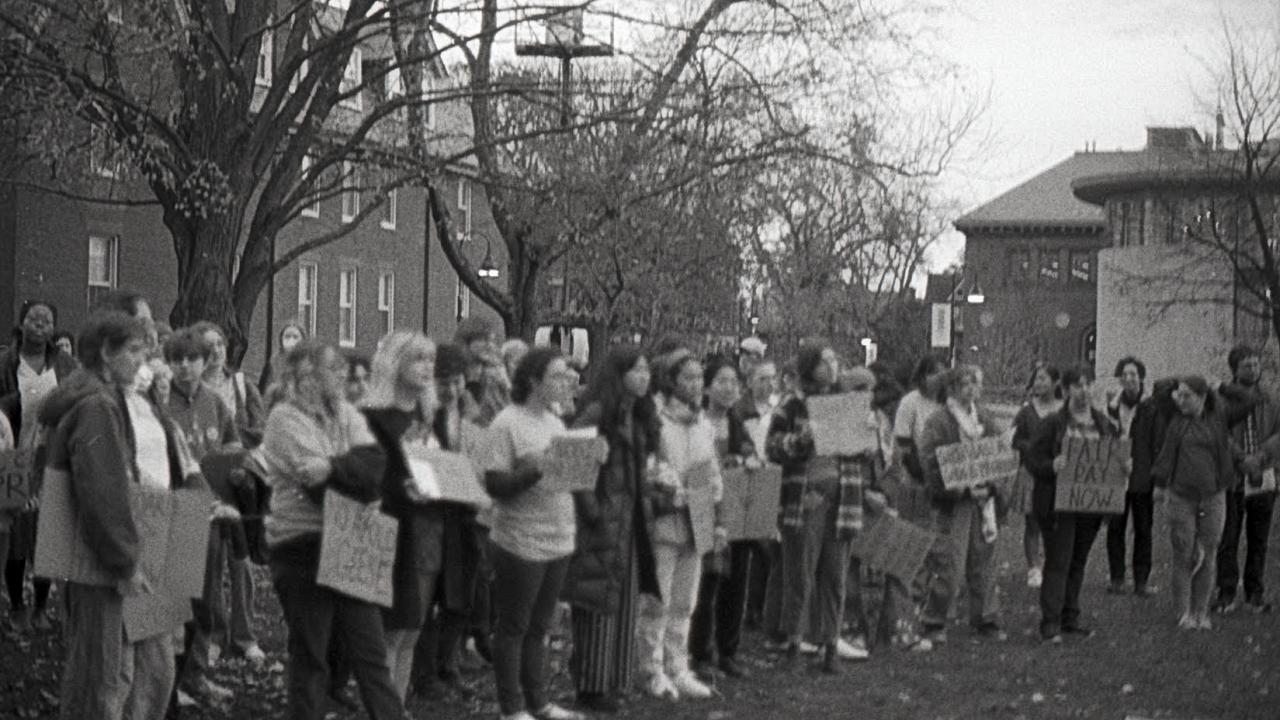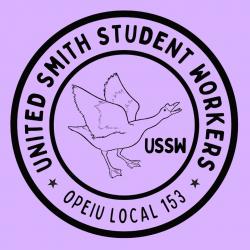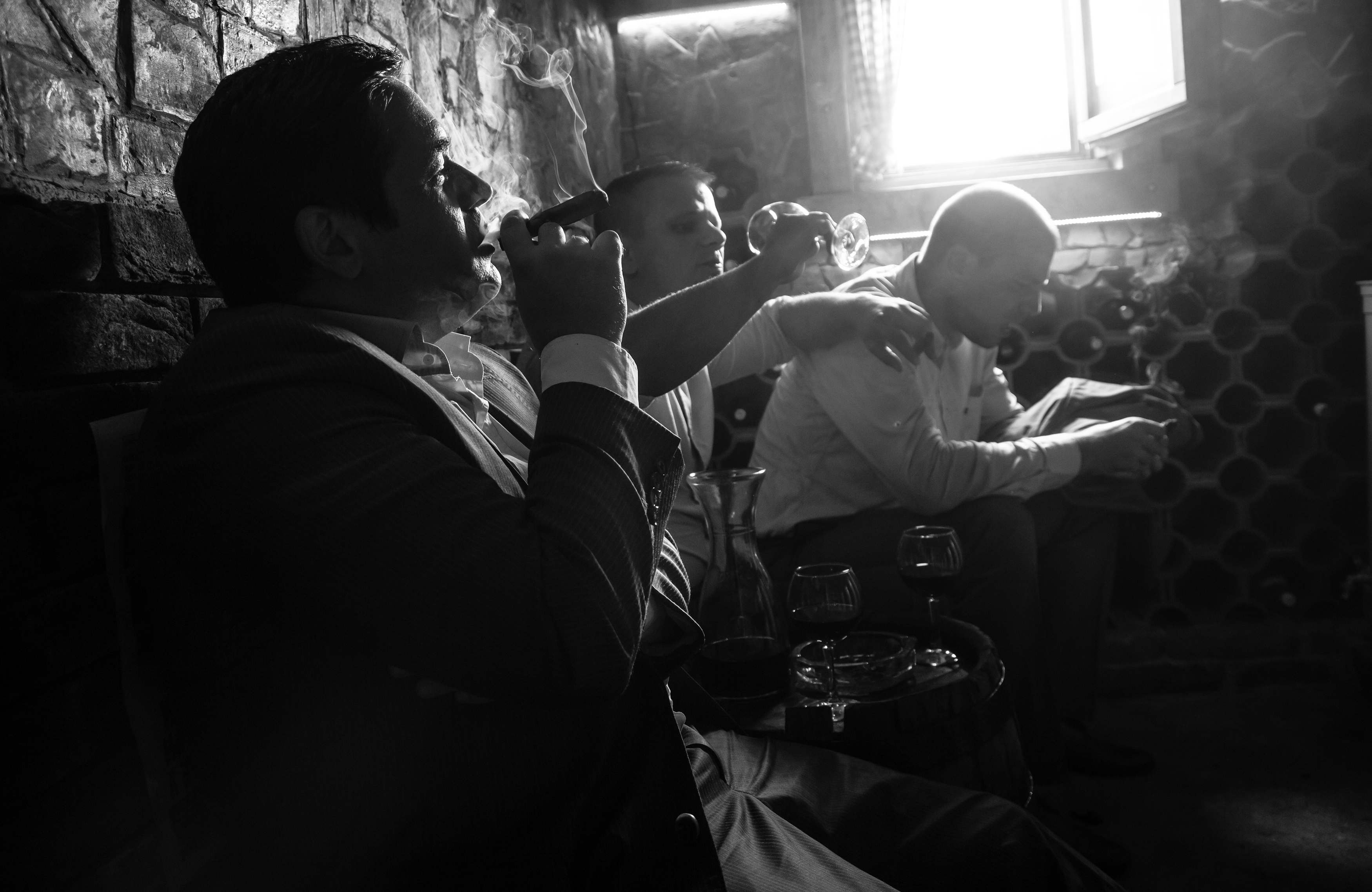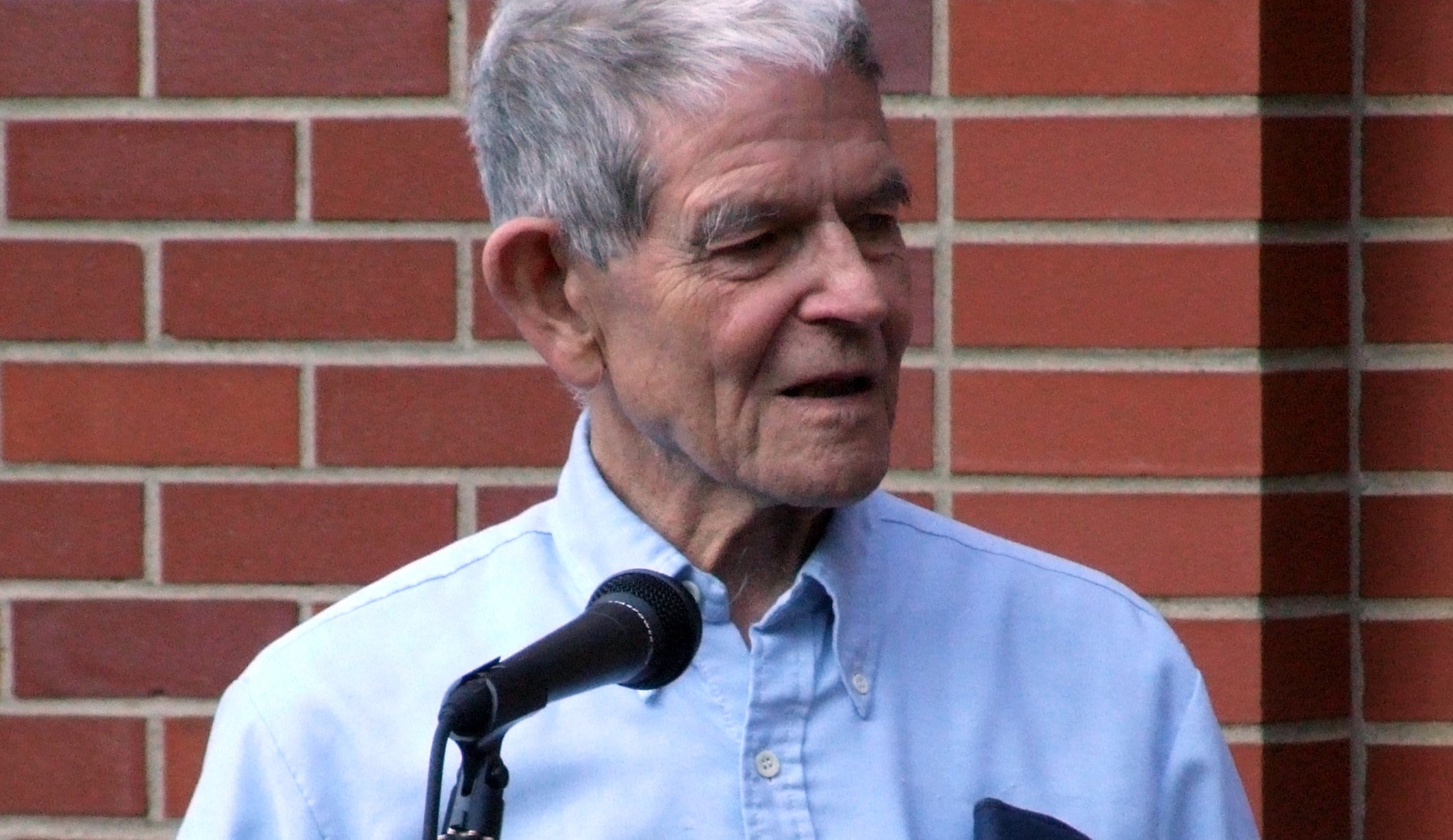We are United Smith Student Workers, a new union of undergraduate student dining-services workers at Smith College in Northampton, Massachusetts. Our process of forming one of the first unions for undergraduates has been long and complex and involved a lot of learning along the way. Most of us are first-time union members, and undergraduate unionism itself is still a relatively new frontier. But our experience is part of a much wider movement of student organizing. Similar campaigns at Kenyon, Hamilton, and Barnard College, the University of Dartmouth, and many others all make up a nationwide wave of solidarity and strategy.
There are many reasons for this wave occurring now. While union organizing is driven by workers (in this case, workers who are also students), we are also affected by our relationship with larger bodies like the National Labor Relations Board. In March 2021, the NLRB decided to withdraw a rule that would bar students at private colleges and universities from unionizing. This provided an opportunity that student workers, who have long needed to collectively bargain with their employers, have taken advantage of. This was a turning point for student labor rights, and without it, our campaign would have looked very different.
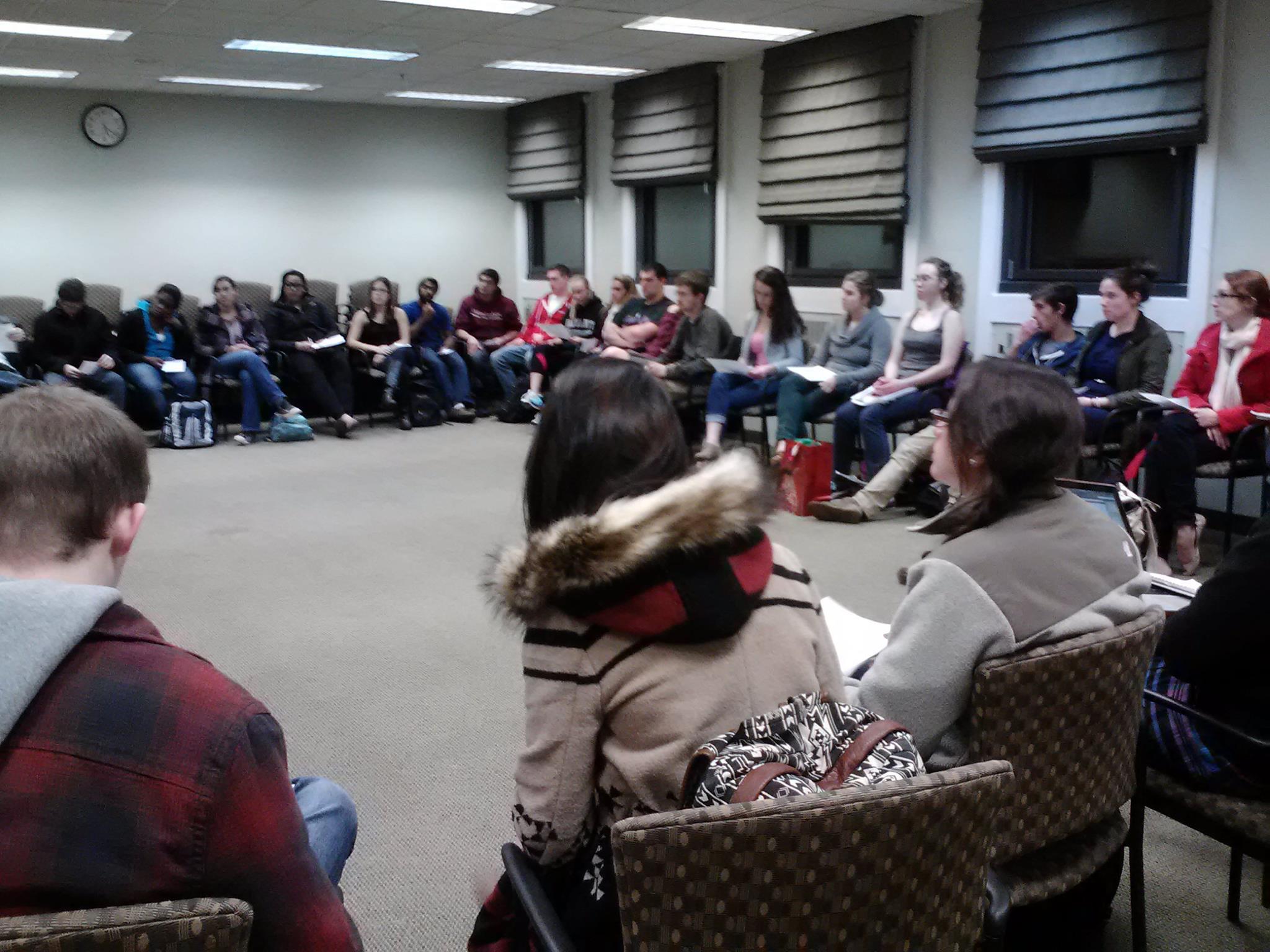
This is not to say, however, that student workers weren’t organizing on their campuses before 2021. The wave of undergraduate unions didn’t come out of nowhere—it’s a network constantly building on itself, compiling experiences and lessons much like every other social movement. Many of these experiences date from long before the 2021 ruling. Just across the Connecticut River from Smith, undergraduate RAs at UMass Amherst unionized back in 2002. Student dining workers at Grinnell College unionized in 2016, forming their independent Union of Grinnell Student Dining Workers that expanded to include all student workers at the college in 2022, making it the first wall-to-wall undergraduate student union. Since the Board’s 2021 action in support of student organizing, we have seen student workers at colleges across the country harness their collective power and undertake successful union campaigns.
United Student Labor Action Coalition
Each of these campaigns has a unique origin story. The story of United Smith Student Workers begins with the Smith United Student Labor Action Coalition or USLAC. This student organization was founded in a collective organizing class at Smith College in the fall of 2021. Directly inspired by the USLAC organization at Wesleyan University, Smith USLAC was a way for students to advocate for the full-time staff at the college and zero in on labor issues on campus. Many future members of the union organizing committee, including the ones writing this article, were USLAC members first. With USLAC, we formed a close allyship with SEIU Local 211, the dining and housekeeping workers’ union on campus. An email campaign calling for improvements to the housekeeping staff’s uniform purchasing process quickly grew in size and ambition as other students joined in our demands for respect and dignity from college administration and the idea of building solidarity with full-time workers. Although the Smith administration didn’t pay much attention to our campaign, it put USLAC on the map and labor issues on the minds of our fellow Smith students.
Starting in the spring of 2022 and continuing into the following fall semester, USLAC began advocating for Local 211 during their regular biennial contract negotiations. The negotiations were not going well. The full-time workers were asking for a raise to match those granted at comparable institutions, as well as a prorated healthcare plan and the establishment of some new full-time positions in the campus's nine dining halls in order to address their understaffing crisis. The school was extremely resistant to all of these requests. We began organizing protests and rallies to make the student population aware of the college’s refusal to negotiate reasonably and get people galvanized around the issue.
In the end, despite our rallies, direct actions, and education campaigns around the issue, USLAC's advocacy in 2022 couldn't force the college's hand. The staff were demoralized and disappointed by the tough negotiations and poor outcome, but they weren't particularly surprised. After all, senior employees knew, the conditions of working at Smith College had gotten progressively worse over the past few decades, and the school had taken a progressively harder line on its staff. Smith used to be a place people went to retire, they recalled, but now they were seeing new workers quit in a matter of months because the understaffing was so dire and the college was so reluctant to take its workers' side. And these are the workers that the whole community relies on, who keep our campus clean and fed, and who are unfailingly kind to students both in and out of the workplace.
It was in this context, and with attention to these issues, that we decided to form our own labor union for undergraduate dining workers. There were many issues behind this decision, but a major one was the thought that perhaps having collective power and leverage as a parallel workforce would help us support Local 211 in their goals more effectively. As we began to discuss how to organize, we were in touch with professional organizers working for OPEIU, a union of over 100,000 members, including a local representing workers in nonprofits, higher education, and other workplaces. We decided to affiliate with OPEIU Local 153 because of their experience in organizing with undergraduate student workers.
Organizing the Union
There have been a few phases to our organizing so far. We spent many months talking casually to coworkers during shifts, feeling out the most common concerns about the job. We also held town hall-style meetings and social events for student dining workers so these conversations could take place in a more relaxed environment, outside of busy shifts. From these discussions, we found that a lot of issues were widely shared. By far the most common thing workers brought up was the lack of standardized training. It was a bafflingly common experience to have shown up at one's first dining shift and be thrown into the fray with no instruction at all. You'd be trained on the fly by another student if you were lucky, but nothing was guaranteed, and health and safety standards frequently fell through the cracks as a result. Besides training, wages, safety, the college's hour cap, and supporting the needs of full-time workers were strong themes as well.
Conversely, we began to get a sense of the hangups some people had about unionization. Would a union be more trouble than it was worth? Would union membership or a pay raise adversely affect our financial aid? Were our jobs crappy enough to justify the measure? Were they even "real jobs" at all, considering we were students first? People were skeptical––a minority of people, but it still gave us pause. These questions and concerns presented an opportunity for us to interrogate and understand our own reasons for organizing as well as to engage in dialogue with the people raising them. In the end, these trickier organizing conversations—in which we had to work to understand what mattered to our coworkers—were some of the most important and worthwhile ones we had, and the time we spent reflecting on them strengthened our entire approach. We tried to understand what motivated student workers' trepidation about joining a union so that we could better explain how the union would in fact address those concerns. For example, one student worker wasn’t convinced a union would be a good thing until they talked to a full-time, non-student worker, who suggested that forming a union could help them negotiate for more control over their schedule. This happened to be the most important issue to them, and they signed a card.
Over those months we continued workplace conversations, built up an organizing committee consisting of USLAC members, and expanded as more dining workers got involved. Our staff organizers from OPEIU Local 153 were indispensable resources throughout this time. They were kind, knowledgeable, and constantly available with good advice, all without ever stepping on our toes or trying to dictate the terms or strategy of our campaign to us. With their support, we began collecting union authorization cards in the 2023 Fall semester, a couple weeks before going public. Organizing conversations became more targeted and we began spending more of our time talking with people about how exactly a union could address the issues they had. We developed an estimate of the population of students working in dining and did targeted organizing at dining hall shifts. Our goal was 200 signatures before going public—about half the estimated bargaining unit—and we met this goal successfully.
Our position as a labor union at Smith, a historically women’s college as well as a historically queer college, is especially important to our identity and mission. We belong to groups whose labor, especially in “domestic” fields such as food service, has long been overlooked and undervalued. While this school claims to educate us to be community builders, activists, and leaders, the administration balks when we actually try to make change on campus. They would prefer to ignore our identities, both as workers and as queer people, instead treating us like delicate young ladies who are incapable of making decisions for ourselves.
However, we choose to find strength in our marginalized identities. It is impossible to omit the fact that our entire organizing committee belongs to the queer community. It is an integral part of our organization and we give credit to our experiences with the queer community for teaching us the skills needed to make connections, the connections that form the foundation of a strong union. Because of our experiences as queer people, many of us had already begun to learn how to assert our need for recognition and respect, to support others through a struggle, and to create a community that felt like home, one that naturally drew people in and made them want to get involved. It felt natural to extend these skills into our labor organizing. Unions have never been the exclusive domain of straight white men, but as more and more young people organize, they will likely start to become more outwardly queer. We believe this is an important part of the development of the labor movement as we intersect with and draw from other community-oriented groups.
The week we went public we conducted a union blitz. The goal here was to collect enough signatures to constitute a supermajority before delivering them to the administration, alongside our petition for voluntary recognition. This petition was a letter explaining our intention to unionize that included the names of all of our coworkers who signed it using a secure online form. Our blitz consisted of more of the same targeted organizing from before, turned up to eleven. We combed through the dining hall work schedules and approached the workers who hadn’t signed at their shifts in the dining halls and cafes. We made announcements in our classes and initiated organizing conversations in the corridors of academic buildings. We manned tables in high-traffic areas on campus and held union Q&A events for student workers. It was a very busy week for the organizing committee. But it wasn't for nothing: by the time we delivered the petition on Friday, over 66% of the student dining worker population had signed a card.
The Boss Campaign
In the weeks following our blitz, the college was uncommunicative. We never received any response at all to our request for voluntary recognition, and they pushed off responding to and notifying the unit of our NLRB election petition as long as they could. But as of this article's writing, we have a date set for our union election: February 1, 2024. We've built supermajority support, developed lines of communication, and otherwise laid the groundwork for an election over the past few months, so we're more than optimistic for a "yes" vote. We're eager to enter into bargaining with the college during the 2024 spring semester.
During our campaign, we tried to anticipate how Smith might respond to our organizing. We were able to look at boss campaigns conducted at other schools, such as our sister institution, Mount Holyoke College, whose resident advisers recently unionized. A boss campaign is an anti-union campaign that an employer launches when they are afraid they will be forced to recognize a union of their employees. This often looks like management spreading misleading information about unions designed to persuade workers to vote “no” in a union election. At Mount Holyoke, Residence Life sent out a “Frequently Asked Questions” that made it seem like the union was a third-party organization and misrepresented the supermajority of support that the union had. That context allowed us to begin considering our responses in advance. We brought this process of inoculation into every organizing conversation we had, brainstorming with coworkers about potential anti-union arguments and thinking through their weaknesses.
Now we are beginning to see how management's anti-union campaign is going to work. First, we believe the college’s choice to delay responding to us is a union-busting tactic. Given that a supermajority of workers had signed authorization cards, the democratic choice for the college would have been to voluntarily recognize our union. Instead, they waited until it would no longer be feasible to hold an election before the end of the semester to respond. Earlier they also insisted that our population of eligible voters be reduced from 400 workers, all working a range of hours, to only 140 people, all of whom work four or more hours per week. This decision would disenfranchise 65% of our unit. While this is undemocratic and unsuited to the structure of the workplace, we are confident that we will win our union regardless. Through bargaining we hope to ensure that the final unit under the contract will include all of our coworkers in Dining.
In addition, Smith published a misleading FAQ on its website and in emails sent to all students. These FAQs employ the classic union-busting strategy of presenting the union as a third-party organization when it is, in fact, the workers themselves. We have filed NLRB charges against Smith for its illegal anti-union activities, including misinformation in the FAQ page. Because of the inoculation work we’ve done throughout our campaign, Smith’s union-busting campaign hasn’t caught us by surprise, and we meet it fully prepared to counter these anti-union strategies with our most powerful tool: solidarity.
Even though the pushback from our own college has been disappointing, we're proud of what we've accomplished so far through organizing. We also know that winning a union is only the first hurdle. Organizing needs to remain sustained and purposeful, through our first contract negotiations and into the future, across many semesters and degrees' worth of member turnover. We hope to build a union strong and steadfast enough to support student workers for years to come, and to uplift other workers across the board. The organization that our dining student worker organizing came from, USLAC, will continue to support labor organizing at Smith by students and staff and remain connected with local unions and workers’ rights organizations. We are committed to maintaining relationships with full-time union workers and, as a registered student organization, USLAC is well-positioned to stimulate discussion and action on labor issues on campus.
The Undergraduate Student Union Movement
The network of undergraduate student organizing which we mentioned earlier has played a crucial role in our organizing. The victories of other undergraduate student unions, such as the Student Worker Collective at Dartmouth’s win of a package proposal including a $21/hour base wage after its members voted to strike, have given us hope and provided us with a powerful tool in our organizing conversations. We have found that simply listing the other colleges where undergraduate student union campaigns have been successful shows our coworkers what is possible and legitimizes our own campaign. The other piece to this is our personal relationships with organizers at other colleges. As much as the student labor movement has made incredible progress over the last few years, this area of organizing is still new, and there’s a lot we don’t have answers to. How, exactly, does federal work-study function? How do we make sure international students feel safe to organize regardless of their citizenship status? What’s the best way to collect union authorization cards—physically or virtually? We brought these questions and many more to our friends who had organized successful union campaigns at other colleges. Early in our campaign, our organizing committee met virtually with three organizers with the Union of Grinnell Student Dining Workers to learn about their campaign. We also met with the aforementioned Mount Holyoke RAs' union. Conversations like these provided us with invaluable lessons and strengthened our sense of being part of a powerful and supportive network. We feel a special connection to the other student unions affiliated with OPEIU Local 153, including the Emerson Union for Resident Assistants from Emerson College in Boston, who went public with their campaign the same day as us!
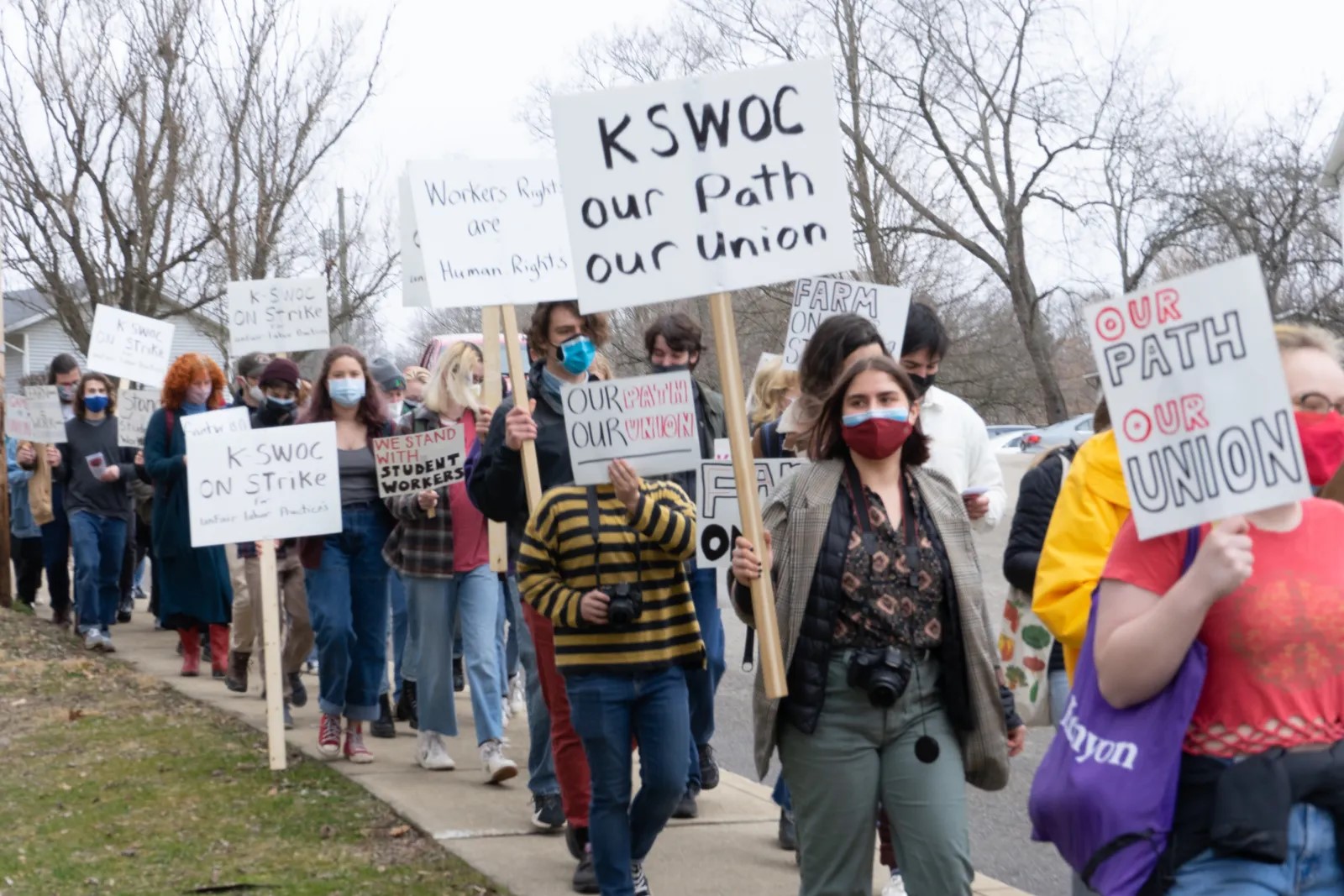
Now that we are fully public, we have been able to share resources with other student workers interested in doing what we did. We work closely with the Smith College Residence Life Collective, the union of House Community Advisers and other student staff in residence life, who have dealt with the same lack of communication from the College. We look forward to supporting labor organizing wherever it happens, both on- and off-campus. We are excited to give back to the community who have supported and informed our campaign in so many ways.
At the stage we're at now, trying to get the college administration to recognize our union, we have run into the same old anti-labor, anti-worker attitudes. However, we have learned so much from our previous organizing efforts and built an amazing network of solidarity and support with the full-time workers on campus. We have even been able to share knowledge and resources with other new unions! Smith’s version of RAs, House Community Advisors (HCAs) are in the process of unionizing at the same time as us, and are going to an election this semester. We're so proud of their efforts and success, and are gratified to stand in solidarity with them. We have also heard growing union sentiment from other student workers on campus and have been thrilled to offer them our support as they begin to organize their own workplaces. We are seeing just how contagious worker power can be and how much strength and influence we have on campus. There are now so few areas of campus that remain unaffected by unions or pro-worker sentiment that, with each unit acting in solidarity with the others in the capacity their work affords, there is support wherever we go.
In addition to the resurgence of interest in labor and unions on the left, having an active, visible labor organization on campus has done a lot to raise awareness of labor issues on campus. We have tried consciously to increase student workers’ perception of themselves as workers, as employees of the college, not just students. Frequently, colleges try to shut down undergrad unions by telling student workers that being a worker is an insignificant part of their experience at the college. We know this is not true! Many of us rely on our wages to pay for school, from books to tuition to travel expenses. We as workers fund ourselves as students. In addition, we're painfully aware of the difference in how we are treated when we are seen as a student versus as a worker. Student dining workers regularly report getting ignored, belittled, or disrespected by their own classmates while they are working. For us, a union is not just about higher pay, increased safety measures, and better training, it is also a demand for respect as workers. Smith is an employer as well as a school; we feel it has a responsibility to be as good of a place to work as it is to study.
